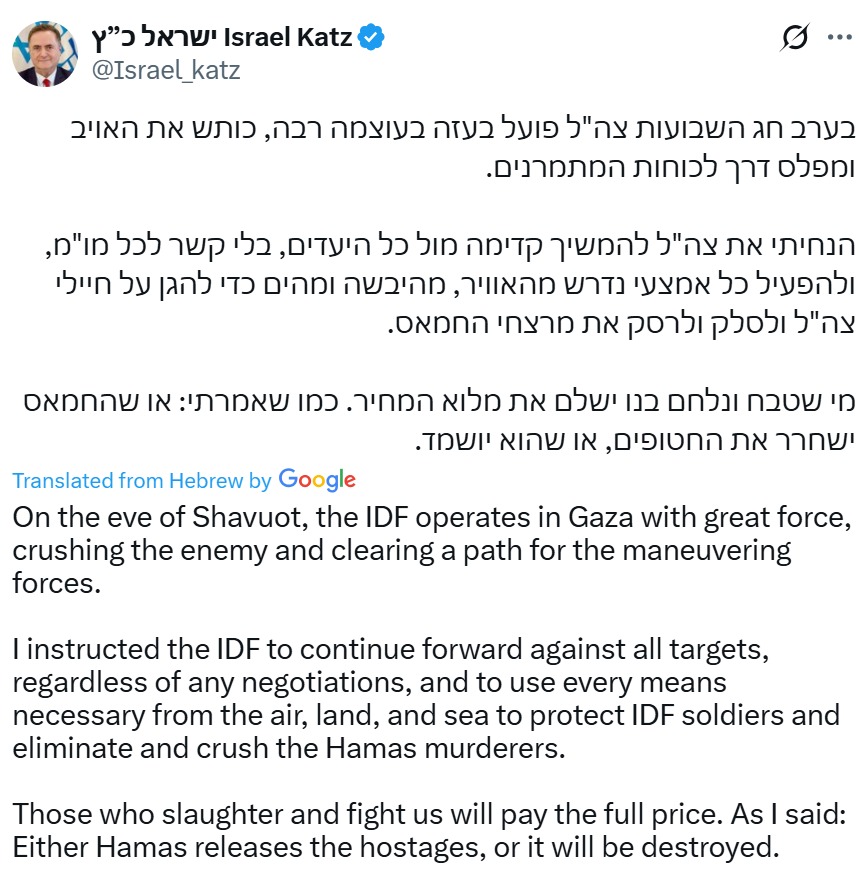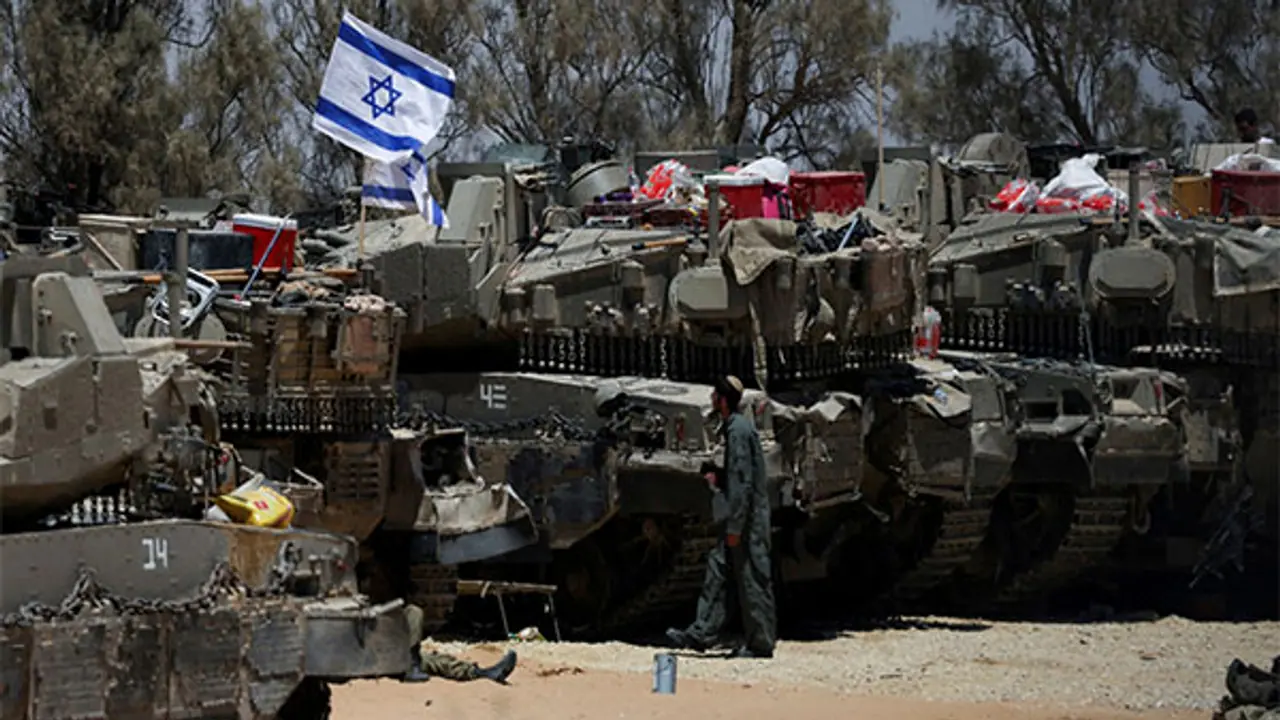An Israeli airstrike on Gaza killed 14 Palestinians, mostly women and children, as the IDF announced an expanded ground offensive. The military move follows orders from top Israeli officials to intensify operations against Hamas.
An Israeli airstrike hit a residential building in northern Gaza on Monday, killing 14 people, including several women and children, according to local health officials.

The strike took place in the densely populated Jabaliya refugee camp. Doctors at Shifa and al-Ahli hospitals reportedly confirmed the deaths, saying seven children and five women were among those killed. The identities of the other two victims are yet to be confirmed.
Israel has repeatedly said its operations are aimed at targeting Hamas militants and that civilian deaths are the result of the group operating within populated areas.
The strike followed a public statement by Israeli Defense Minister Israel Katz, who said he had instructed the Israel Defense Forces (IDF) to press forward with operations in Gaza “against all targets, regardless of any negotiations.”

In the post on X, Katz added: “I have instructed the IDF to continue forward in Gaza against all targets, regardless of any negotiations, and to use every means necessary to protect IDF soldiers and to eliminate and crush the Hamas murderers.”
Ground offensive widens
The IDF also announced that Chief of Staff Lt. Gen. Eyal Zamir has ordered the expansion of the ground assault into new areas of the Gaza Strip. The decision came after a high-level security assessment in southern Gaza with senior commanders, including Maj. Gen. Yaniv Asor (Southern Command), Maj. Gen. Tomer Bar (Air Force), and COGAT head Maj. Gen. Ghassan Alian.
The latest military escalation follows months of intense fighting, with ceasefire talks repeatedly stalling. More than 36,000 Palestinians have been killed since the war began in October, according to health authorities in Gaza, while Israeli officials say over 1,200 people, mostly civilians, were killed in the initial Hamas-led attacks that triggered the conflict.
Civilian toll continues to mount
The latest strike is part of a pattern of air raids and ground assaults that have increasingly struck residential neighborhoods, displacing thousands and overwhelming Gaza’s already collapsing health infrastructure. Humanitarian agencies continue to warn of famine, disease, and lack of medical supplies as the conflict rages on.
International calls for restraint have so far failed to produce a lasting truce, and the latest statements from Israeli leadership indicate that military action will continue with greater intensity in the coming days.
Conflict began with Hamas attack on October 7
The ongoing war began on October 7, 2023, when Hamas militants crossed into Israel and killed about 1,200 people, mostly civilians. They also kidnapped 251 hostages. As of now, 58 hostages remain in Gaza, with roughly one-third believed to be alive.
In response, Israel launched a full-scale military campaign in Gaza. According to Gaza’s Health Ministry, over 54,000 Palestinians have been killed so far, most of them women and children. However, the ministry does not provide separate figures for civilians and combatants.
Destruction and displacement in Gaza
The war has caused widespread destruction across the Gaza Strip. Nearly 90% of Gaza’s population has been displaced, with entire neighborhoods flattened by airstrikes and ground operations.
Hamas has stated that it will release the remaining hostages only if Israel agrees to three conditions:
- A lasting ceasefire
- Withdrawal of Israeli forces from Gaza
- Release of Palestinian prisoners held in Israeli jails
Israel, on the other hand, says it will not stop the war until all hostages are freed and Hamas is either destroyed, disarmed, or forced into exile. Israeli leaders have also said they plan to retain control over Gaza and encourage what they call the “voluntary emigration” of much of its population.
Most Palestinians and international groups have strongly opposed these relocation plans, calling them an attempt at forced expulsion.
The humanitarian crisis in Gaza continues to worsen, with ongoing airstrikes, food shortages, and crumbling health services, even as global calls grow louder for a ceasefire and a lasting peace solution.


